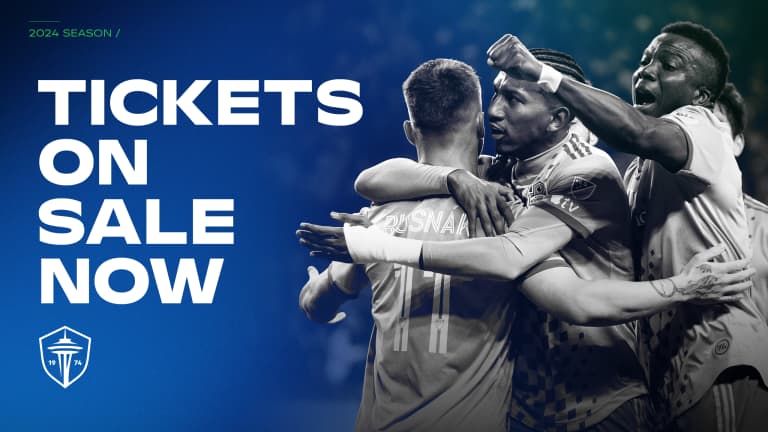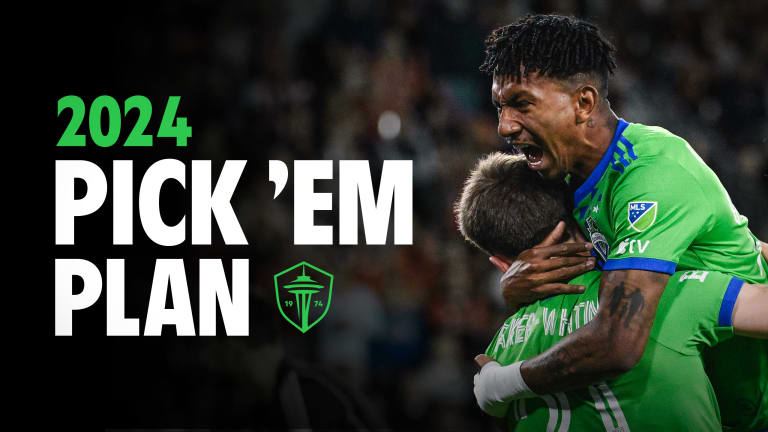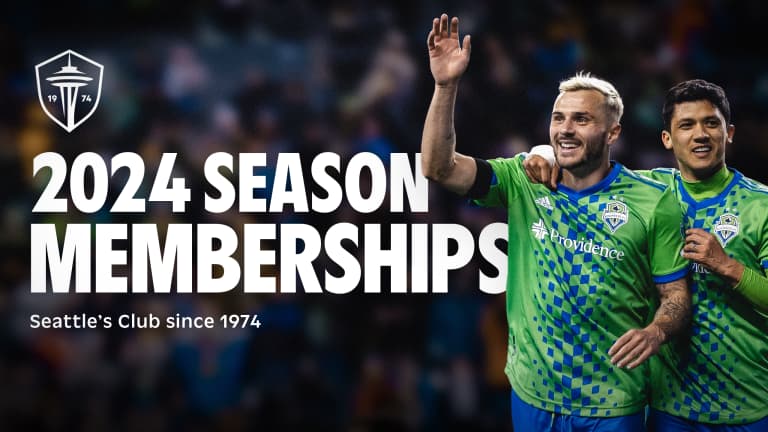Frank MacDonald talks with Tonya Antonucci a Washington native and the commissioner of Women’s Professional Soccer (WPS).
Whereas Michelle Akers made a profound impact on women’s soccer during the Nineties, another Northwest Native is poised to be a driving force for the next stage of the game’s development. Tonya Antonucci, a native of Mukilteo and graduate of Mariner High School, is the commissioner of Women’s Professional Soccer (WPS), which will begin play in spring of 2009. Antonucci, 40, has helped craft a business plan which can build on the success of the U.S. National Team while not making the same financial missteps which plagued WUSA, the first women’s league, from 2001-03.
Before we begin our official 10 questions, where do you stand on the MLS team’s name?
I’m following the process online. Let’s just say I’m still doing my research, but I am planning to vote.
If we asked, say, one of your Stanford teammates, what would be her scout on Tonya the player?
I played in the center of midfield, and my style was more of a ballhandler, distributor, finesse player. They would’ve said she understands the game and has a creative approach. Good vision, good ball skills. A good passer but not the most dominating physical presence and her defense could stand to be tougher.
Who’s the player you always wanted to be?
Growing up in the Seattle area and having played with her, I was always a fan of Michelle Akers. She had the quintessential complete game: the vision, the skills, very deft with the ball and yet complimented that with brute physical force. She could win every air ball, finish every cross and was fearless with her body. I wanted to be the complete package and that was Michelle.
So what was the path that led you from player to your position as league commissioner?
Looking back on it, it looks as though I was going in different directions and trying to find my way. After playing, I went on to coach for three years while I was working on my MBA. Then I moved back home and started working at Starwave, one of the Paul Allen companies. I was working on new media with Satchel Sports, which then became ESPN Sportszone and ESPN.com. I went to Yahoo in 1996 and I continued to be in this sports-related theme in an entrepreneurial environment. I was creating the fantasy sports property and our international coverage of world football or soccer and eventually our partnership with FIFA. So I had experience in soccer coaching, business school and middle management at Yahoo and new internet media. Now I see all these that things led me to where I am today.
How did the opportunity to become Women’s Professional Soccer commissioner, specifically, come about?
I left Yahoo after seven and a half years, just looking for a new opportunity. Not two weeks after I left there, I saw Julie Foudy at a Stanford soccer reunion. Jules was a freshman when I was a senior. She said to me, “Ninj (Tonya’s nickname, short for ninja), our league’s re-launch has slowed down and we want a new leader. We need a new business model shopped to investors. Would you like to take that on?” It would be like at Yahoo, a startup environment where you roll up your sleeves and you’re the underdog. Unequivocally, my response to Jules was, “Yes!”
What’s the league’s relationship with MLS and U.S. Soccer?
Totally different. In the first league (WUSA) they went their our direction on a solo path. We approached MLS and said there have got to be ways we can do things together. We had some ownership in common. There are synergies. There are stadiums in common. Two ownership groups (L.A. and D.C.) in common with MLS, and other teams are playing in MLS owned facilities. The concept for us is the same in that you’re trying to create efficiencies. You’re trying to be crafty in a positive way to get costs manageable. In 2003, the average paid audited attendance in WUSA was 4,500 per game. It’s a decent number for a 3-year-old league. Our investors are taking the long view and sustainability. They want to start with those sort of numbers and grow from there. Fans didn’t walk away from that league (WUSA). The expectations were just too high, too early.
How will the WPS level of talent compare to that of WUSA?
WUSA had the best players and the best league in the world and they were accessible off the field, be it signing autographs, going out into the community or working with sponsors. They were a different breed of athlete. That is something we want to retain. We see Women’s Professional Soccer as the best league in the world. We’re confident that all the best and best up-and-coming domestic players will play in our league. On the international side, we’re certainly going to go after everybody of the highest quality. Sometimes people are on multi-year contracts, so there will be some instances where people will have on more year on their contract before they can come play for us. We believe our model will be really attractive to these stars.
What are the next critical announcements for WPS in, say, the next few months?
In the spring and summer leading up to Olympics, we hope to have 1-2 national TV deals, 1-2 national sponsorship deals announced and a general marketing partnership with USWNT players association. At some point, we may have an allocation of players before the Olympics. It’s something we’re considering. On the team side, they continue to roll out announcements on facilities, coaches and GMs. By early summer all teams will have their names, logos and colors done. It’s exciting times because, we’re beyond capitalizing the league and we’re now into the fun stuff.
You have seven teams. As you look to add an eighth team for 2009 and more beyond, what type of community best suits a WPS franchise?
We have a lot of cities that meet what we’re looking for. The magic bullet is finding an investor in that community who wants to invest in that team. We have a list of 15 criteria, but it’s not an exact science. We’re looking at cities with 2 million or more in the metro area, an established soccer community, youth to adult or strong college programs. Having another pro soccer team helps because we feel it’s an additive. We want a community that would be welcoming of women’s professional sports. We want to flank USL and MLS to the extent that they have a soccer specific stadium. We want to avoid large, cavernous stadiums that don’t match the size of our audience. But first and foremost we want to identify investors where it makes sense for them in those markets.
Given that, do you see a Women’s Professional Soccer franchise someday in Seattle?
We definitely want a team in Seattle. I have a longstanding conversation with Adrian Hanauer and Tod Leiweke, a conversation that started way before they got the MLS franchise, and we continue to talk to them now. It’s matter of when’s the right time for them to get involved. They are obviously focused on their inaugural MLS season. It’s important that the men’s team gets off the ground strong. But based on the conversations it’s been positive. It’s just a matter of timing and, the facility question, whether Qwest Field is the right place, with our attendance between 5-10,000 fans, for us from a fan experience standpoint.
Olympic qualifying begins later this week in CONCACAF. Given that the U.S. finished third in the World Cup, the Beijing games must be critical to a successful launch of the league?
The Olympics is hugely critical for the international game. Women’s Professional Soccer’s mission is to be the best league in the world and to become a standard by which other leagues are measured. It’s important at these games to see athletes from all different countries shine, not just the United States. It’s going to get the American public excited about athletes they’ve had in their minds since the World Cup. Players like Marta (Brazil), Birgit Prinz (Germany) and Kelly Smith (England), just to name a few. On the domestic side, we all hesitate to create such high expectations for our women’s national team, but you’ve got to admit they’ve got momentum. Pia (Sundhage, USWNT coach) is making changes in terms of the style and the mix of players. They are more emotionally excited about what they’re doing and their motivation to win the Olympics. We all think they’ve made some good moves. They are putting themselves in a position to be successful. Can they guarantee it, a win? Of course not, but wouldn’t it be great if they did.
Ten Questions with Tonya Antonucci

SINGLE MATCH TICKETS AVAILABLE NOW
Grab your tickets and celebrate our 50th Anniversary Season!

2024 PICK ’EM PLAN
Pick your matches and unlock exclusive benefits such as merchandise, on-field experiences, Suite upgrades, and more!

2024 Season Memberships
Our 50th Anniversary season meets our most fan-friendly membership yet.

